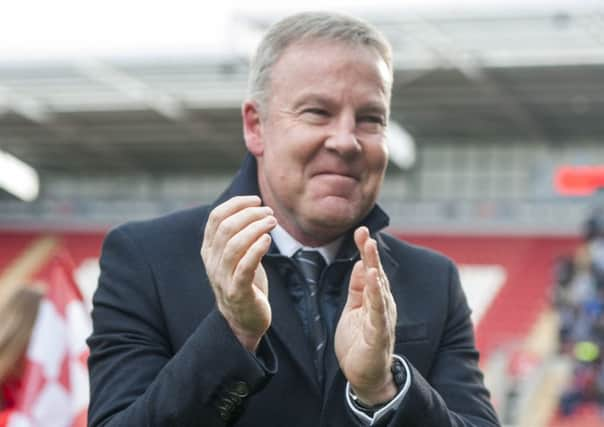Richard Wood column: The Millers defender gives the thumbs-up to Kenny Jackett and eyes life after playing


With me being frozen out recently, long-term worries were starting to play on my mind.
What happens at the end of the season if I haven’t played any games?


Advertisement
Hide AdAdvertisement
Hide AdTrying to get a contract somewhere is difficult if you’ve made no appearances in the year.
Job security is something footballers do not possess.
It’s a precarious occupation that can have great rewards but is also incredibly unpredictable and can leave many stuck and lost in life.
The average football career lasts only eight years.


Most players leave school at 16 and go straight into the industry, with 75 per cent of those dropping out of the game by the age of 21. It’s a scary stat for young players who have only football on their CV. The football industry can be very harsh and it can be very worrying and distressing for people trying to make a career in it.
It’s not just young players with these thoughts, established professionals have the same worries.
Advertisement
Hide AdAdvertisement
Hide AdI often fret that my career will be cut short through injury or wonder what I would do if I can’t find a club. I am out of contract this season and it is not a nice situation to be in. It’s very frustrating not being involved, which hopefully changes now we’ve had a change of manager. But you still think about how this will impact getting a deal for next season. Players need to be playing regularly to get noticed and tied down to contracts.
Not all footballers are paid huge sums of money and, like a lot of people in the country, will have families to look after and bills to pay.
Professional footballers need to have a plan B and make plans for life after football.
All players need to realise that their football career will come to an end at some point ,and that is why I decided to enrol on a university degree last year in sports journalism and PR. I hopefully graduate next year and I’m hoping this course will make the transition from football to retirement easier for myself. It is a distance learning degree which is ran by the PFA in conjunction with Staffordshire University.
Advertisement
Hide AdAdvertisement
Hide AdI have to travel to Stoke at certain times in the year but this is co-ordinated with my days off from training and the off-season.
It’s been a great experience so far and I’ve got to see how the media works around football, which, as a professional footballer, you don’t really take notice of. When I’m listening to footballers being interviewed, I’m now taking notice of the questions asked rather than the answers. I’ve just completed work experience with the media team at Rotherham United, where I got to write for the matchday programme and club website among other tasks I undertook.
The weekly column in the Sheffield Star is another opportunity that arose as a result of me undertaking this degree. I’m enjoying airing my opinions and views on various topics in football and also sharing stories and anecdotes from my career.
I would love to stay in the game once I retire, be that as a coach, media pundit or journalist, but the journalism degree might open other avenues for me such as qualifying to be a teacher. I’m looking forward to seeing what route this course will lead me down, but at the moment, though, I just want to concentrate fully on my playing career while balancing that with my degree work and graduating.